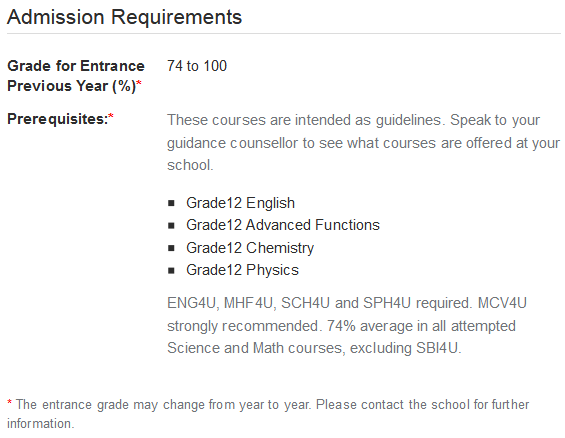Prepping Your Application Prerequisites as an International Student
Getting everything in order so you can submit the best application possible.


Prerequisite Courses and Grades
One of the most important parts of applying to college or university is sorting out your prerequisites. For most programs, you'll need to have a certain set of high school courses under your belt: anything from grade 12 English, for most university and college programs, to grade 12 physics, chemistry, advanced functions, and more for a Civil Engineering program. You'll find these prereqs listed on each StudyinCanada program page.
Your best bet, of course, is to prepare ahead of time. If you're still in high school, you may have a chance to pick up the courses you need. You should check out the pages for programs that interest you, and note the school's expectations. If you're unsure about any specifics, get in touch with your high school guidance counsellor, and shoot an email to the school you're applying to. Not only will you get the answers you need, but you'll demonstrate your interest to the college or university — and they're paying attention!
If you're graduating, you may still be able to earn the necessary credits through online courses, like those offered by Blyth Academy. Consider your completion timeline, though, as you won't be able to breeze through them overnight.
Unfortunately, prerequisites aren't the only concern. Many schools will also look at your overall grades from high school. The average grade necessary is listed under "Admission Requirements" on many program pages. These aren't hard-and-fast, but should give you an idea of what registrars are looking for.
Example: (click to view the program page)

Supplemental Materials
Seems like a lot, right? Well you may not be done just yet! Some programs will require a supplemental application, which could consist of an essay, a questionnaire, letters of reference, an interview — or all of the above.
Some schools will also want external test scores, like the SAT in the United States. If you need to write a test like this, be sure to start studying early, and write the test as soon as you can — that way, if you need to, you can retake it to get a better score. Same story with IELTS and TOEFL if you're a non-native English speaker.
It's important to be prepared! Sorting out these documents will take time, and you don't want to rush.
We've assembled some guides to help with sorting out your supplemental materials:
Once you've got all your prerequisites sorted, it's time to apply! Check out our article on smart application strategies for advice on making the most of your school choices when applying to Canadian colleges and universities.
Log in to Get Matched to Schools & Programs!